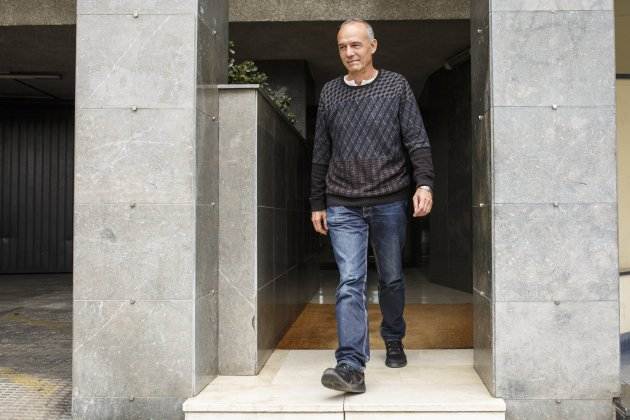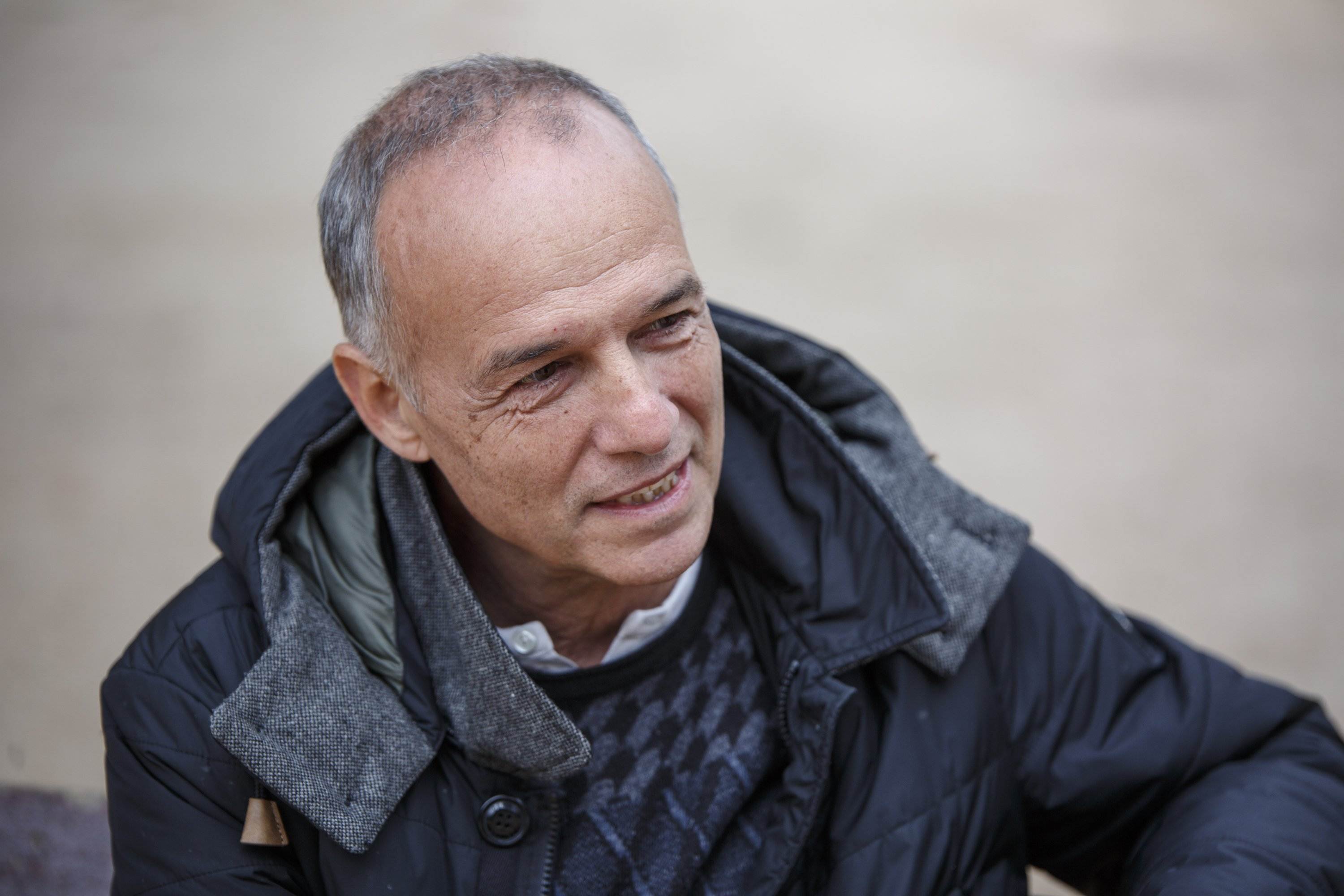For more than 20 years Josep Lluís del Alcázar has been a teacher at IES El Palau secondary school in Sant Andreu de la Barca, near Barcelona, and he has never faced a situation like this. He is a delegate for the CGT trade union and, even though this year he is not a classroom teacher at the school, he goes there every day. He has become spokesperson for the teachers at the school, although this business of being a spokesperson, he says quietly, he just doesn't like that much. Almost every day he is in contact with one or another of the nine teachers at the school who have been accused of hate crimes arising from the Catalan referendum last October.
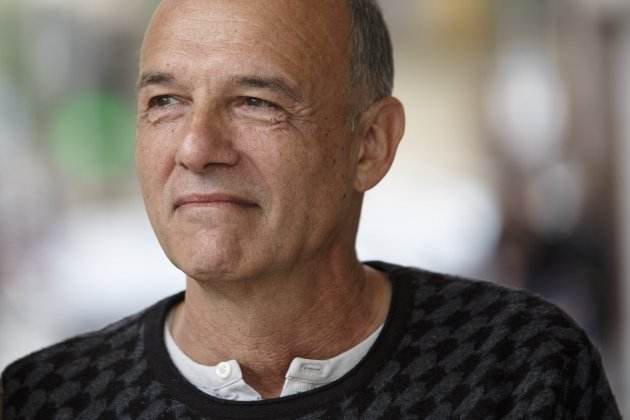
Right now, what's the situation of the high school?
There has been a substantial change. April 23rd marked a turning point – the day that the public prosecutor made a formal charge, before the judge, accusing the nine teachers of a hate crime. But the change was in both a positive sense and a negative sense.
The teachers did not expect that it would reach this point. Until 23rd April, it was thought better not to say anything, to remain silent, and to see if the situation could be put back on course, as usually happens when there is a problem with a pupil.
There is one narrative that has been made public from the first day, that of the [complainant] families, while there was an absolute silence on the part of the school, from the teachers and the education department... But that day, April 23rd, people went into a state of shock, they weren't expecting it, they thought: we have done things right, we have told the truth, nothing will happen and yes... it happened. This is really happening.
Were you naive?
Completely. The following day, which was a Tuesday, we all met and we said: it's over, we are breaking our silence. There is only one narrative, either we make ourselves heard or we will be finished. Then there was pressure applied for us not to speak up.
Pressure from whom?
From the Department of Education. Warnings arrived in the form of information which said "don't speak up, as there could be consequences for anyone who does".
When we broke the silence we saw that we were not alone. Students started to come out and say "Hey, that didn't happen, it wasn't like that"
And what happened when you did break the silence?
Well, we saw that we were not alone, that around us there are many people willing to speak and to fight for this to turn out well. There started to be reaction from former school students who gave us support and, very importantly, in the complaints made, where there is a testimony from one pupil or another in the classes affected, but in those classrooms there is more than one student, there are 25, and many students started to come out and say: "Hey, that didn't happen, it wasn't like that". So the situation got worse because of the judicialization, but at the same time, people realised that we are not alone.
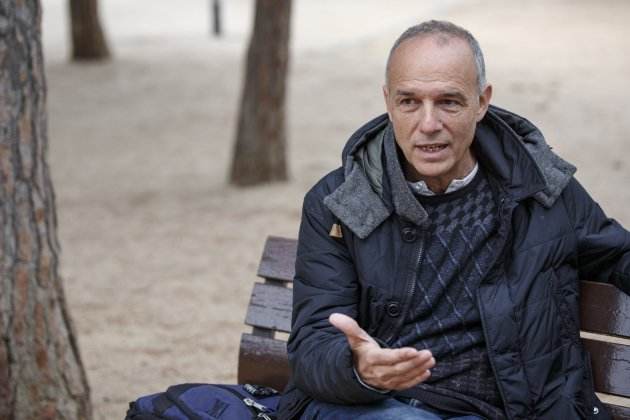
How are they, the teachers affected?
They have spent eight months in silence, with TV cameras in front of the school every day, with statements to the media that are insulting, and people have kept on just taking it, putting up with it. It has been hard for all the teaching staff, but for those that were accused, still more so. There are four who are on leave and one has asked for a transfer. The personal cost is very high. In this case there are two sorts of victims: the teachers and the students, and the instrumentalization of the situation is coming from outside the school. People have been destroyed and the tweet from [Ciudadanos party leader] Albert Rivera was the last straw. They took advantage of the fact that we broke our silence to come out themselves.
For years they were saying that we were indoctrinating students and they needed to have a series of specific instances. First we were accused, but they didn't have any cases or evidence
"They", who are they?
For years they were saying that we were indoctrinating students and they needed to have a series of specific instances. First we were accused, but they didn't have any cases or evidence. There has been instrumentalization, external pressure. [Spanish prime minister] Rajoy and Rivera have made it into a race, they have decreed a crusade against the Catalan public school system.
What happened the day after the 1st October referendum? Were the children of Civil Guards pointed out [as the accusation asserts]?
The teaching staff says they were not, but it was a very tense day. At the school, when something is upsetting people and the students need to talk about it, then we talk about it because we believe that it is better to do so within the framework of a debate, even if it is tense, than for them to resolve it in their own way in the playground. And this approach is as valid for this issue as it is for a Barça–Madrid football match. When there is an issue, it is better spoken about in class than in the courtyard or via Whatsapp. We try to make the debate plural and to maintain respect. Did the question of the referendum entered the classroom? Yes. Was it spoken about in class? Yes, but in the same way as all subjects and we insist that this must continue to happen. On October 2nd, we, the teachers, had a gathering during class recess, outside the school grounds – the students were on their break - and so as not to offend anyone, the manifesto that other schools read was not read here, and we made our slogan For peace and nonviolence.
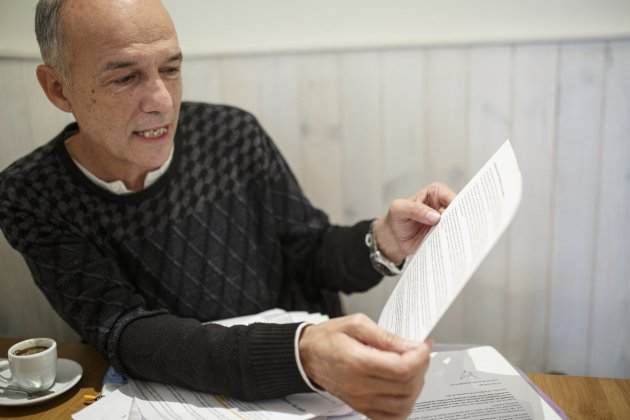
Has the school, the department, or some institution investigated what happened?
The school board investigated it and reached a resolution in which it stated that there was no evidence [of the accusations]. I asked the director of territorial services if the department's inspectors had taken any action and I was told that neither they, nor the school, nor the department had received any complaint. No parent had made any complaint and this was on 27th October.
The inspectors did act even though there was no complaint. They talked to everybody and their conclusion was that there was not any evidence of anything. Why did they not make it public? They told me that it was not to feed the controversy... I don't know, at least you should send the families a letter.
They are interested in keeping the conflict alive, which won't happen if in some mediation a parent says, "Okay, well maybe it's not that serious".
A meeting was called between the school and the parents affected, with the Town Council as mediator. Doesn't it seem strange to you that the representative of the families did not attend the appointment, the meeting was cancelled and nobody rescheduled it for another day?
Well, when the mayor says that the families could not come, that says it all. When they interviewed me on [Spanish TV show] Espejo Público and the subject came up, Mr. Barba, the representative of the parents, said: "I told Llorca (the mayor) that that day I couldn't come, I had to be on set". Really? In a meeting with the top hierarchies about an issue affecting your children you say that you can't come because you have to be on set? He could have told Llorca, with whom I think he has some friendship, "Change the meeting to another day". Everything possible has been done and they don't want it. They are interested in keeping the conflict alive, which won't happen if in some mediation a parent says, "Okay, well maybe it's not that serious".
How do you think that it will all end?
For us to break our silence and be met with the immediate response that they published the names of the teachers, and Rivera retweeted it... They incited the graffiti [of teachers' names on the school walls], they are adding fuel to the fire, to make it end badly. There are people who want the next step to be, instead of graffiti, a stone, so that people end up getting hurt, because then the narrative would be perfect, they would have the perfect storm, that is to argue that because of talking about it we end up fighting, something they have never been able to show.
There are people who want the next step to be, instead of graffiti, a stone, so that people end up getting hurt, because then the narrative would be perfect, they would have the perfect storm
This same tweet that propelled someone to graffiti the school made many former students feel moved to defend their centre and a demonstration was held that attracted over than 1,000 people.
The reaction of the Spanish state... they have converted it into a problem of state. They send two top officials not to find out what is happening, not to help, but to give support to the Civil Guard. They haven't said that they will come and meet with the teaching staff, with the mayor. They are coming to close ranks. It's very serious and to put more stress on the problem they have now revealed 80 further cases that happened a few months ago.
